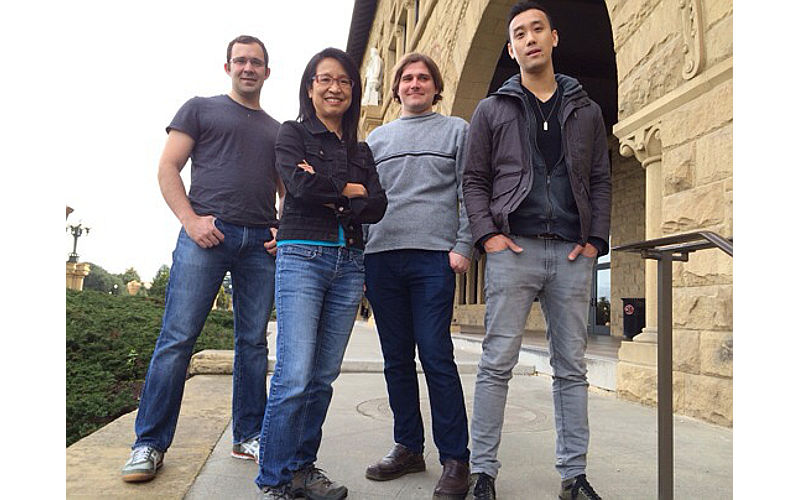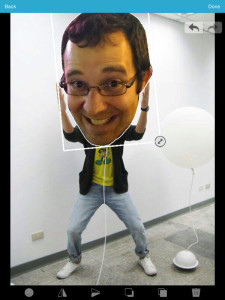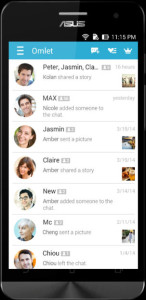Veteran SMS is increasingly crowded out by Messengers. Behemoths like Facebook Messenger, WhatsApp, Line, Kakao and Kik have platforms with hundreds of millions of users. Despite the challenges of overtaking these more established apps, Omlet Inc is optimistic about their feature filled self-titled messenger.
Built on top of a core privacy technology developed with a National Science Foundation grant, and fresh out of Stanford’s StartX accelerator, Omlet has already garnered press from Forbes, VentureBeat and the New York Times. What sets it apart and justifies their optimism?
Omlet is not chasing Snapchat’s ephemerality
Omlet promises to keep itself and your data separate in a few ways. First, Omlet keeps personal user data (messages, photos, etc.) for only two weeks. They are not chasing Snapchat’s ephemerality; Omlet only keeps the data to ensure delivery if someone’s phone is switched off. Next, Omlet has already partnered with Dropbox, Box and Baidu to host personal cloud accounts for all of their users.
Omlet, however, wants to make clear its not just an austere messenger for the privacy conscious. “It is a very fun and expressive chat app that allows you to connect with your friends as frictionlessly as possible,” Ian Vo, cofounder of Omlet, said before highlighting their “ability to support groups of up to 200 to 300 people.”
Omlet is full of features that distinguish it from SMS or more stripped down messengers. For example, Omlet users can create and send GIFs in within one simple interface. “It’s really easy to snap a picture and draw on it, or type on it to make a meme,” said Hao Liu, senior software engineer at Omlet. Liu was also particularly excited about the feature which allows users to augment the extensive sticker library with their own, “I take my friends’ photos, crop them and I’ve got a new sticker.”
But what if there isn’t an app for what you want to do? Omlet features an open platform for development which comes with a couple of in-house examples, including a version of 2048, voice messaging and encryption. Using HTML5 and Javascript, developers can create apps that will work with Omlet on all platforms in just a of couple days. Moreover, developers can immediately share new apps with their friends through chat, which includes cross-platform support for iOS, Android and now Tizen.
“the Tizen version of Omlet … is one of the few applications you can download for Samsung’s Galaxy Gear 2 smartwatch”
“For those on the cutting edge, the Tizen version of Omlet should be of interest as it is one of the few applications you can download for Samsung’s Galaxy Gear 2 smartwatch.” Monica Lam, CEO, co-founder and professor of computer science at Stanford University, said.
Since the Gear is running a full version of Omlet, developers can build apps for that as easily as they would for mobile. Omlet allows users to receive messages, photos and video, as well as send canned responses and quick voice messages from their Gear smartwatch.
“expressiveness is what the makes the chat experience”
Omlet is also actively striking strategic distribution deals such as the one with Asus that led to the Omlet app shipping on all new Zen Smartphones. For the Omlet team though the key is their approach to the product.
“For us it has always been about creativity — expressiveness is what the makes the chat experience.” said Vo. As he sees it, the biggest apps are fighting for supremacy with closed, proprietary apps in which the users are as much the product as the client and Omlet is something different.
It will be be exciting to see how Omlet executes this compelling combination of user creativity and control and how it leads to organic growth in the coming months.
Find out more about Omelet on the app’s website.
The preceding post was written by Buster Zalkind and Jonathan Marinaro. Buster Zalkind does Operations and Strategy for Weeby.co, a messenger-first mobile gaming technology company. Jonathan Marinaro writes and interns for Weeby.co between semesters as the Production Editor at the Spartan Daily.




